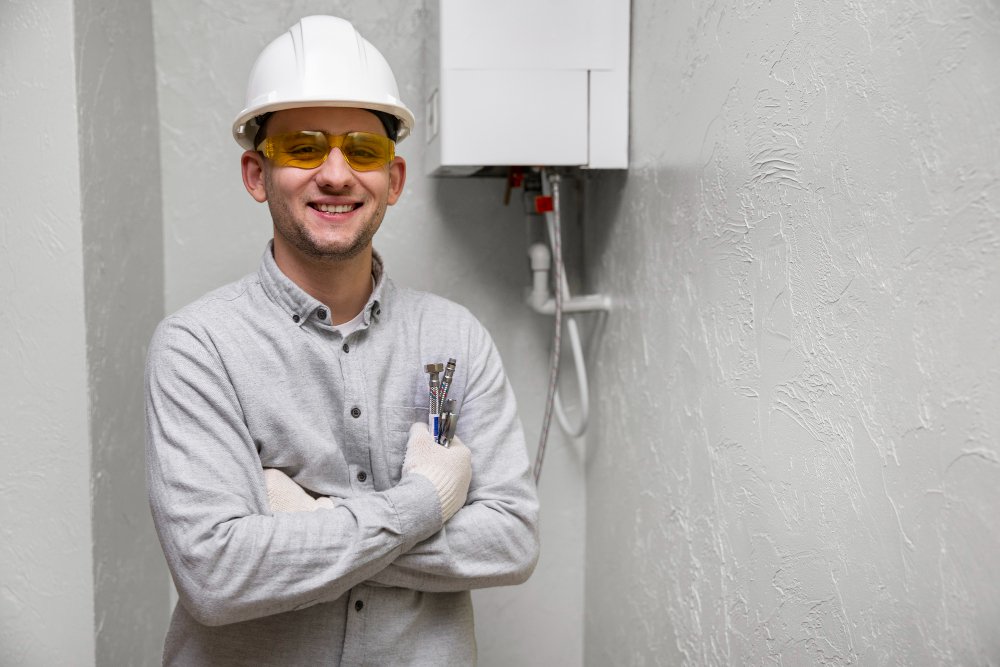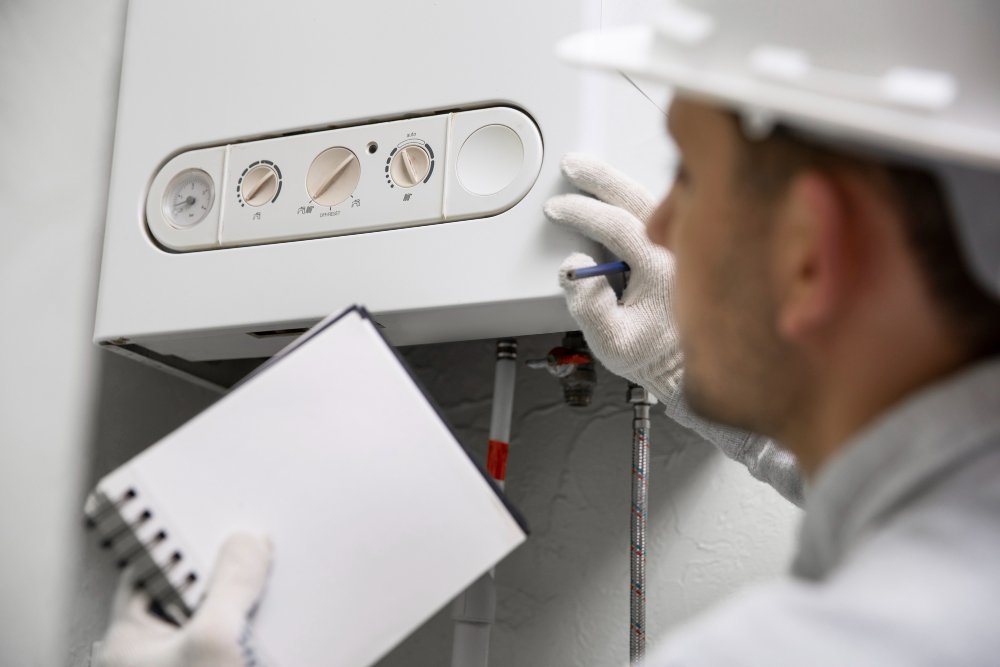A dependable water heater is something most people don’t think about until it stops working. Whether it’s a freezing shower, leaking tank, or skyrocketing energy bills, a failing water heater can disrupt your home fast. When repairs aren’t enough, a professional water heater replacement restores comfort, reliability, and efficiency to your plumbing system.
Modern water heaters are more powerful and energy-efficient than ever, providing consistent hot water while lowering your utility costs. Whether you’re upgrading from an old tank system or switching to a tankless model, replacing your water heater is one of the smartest investments you can make for your home.

Every water heater has a limited lifespan—typically around 8 to 12 years for tank models and up to 20 years for tankless units. If yours is approaching that range or showing signs of wear, replacement is often the safest and most cost-effective option.
Here are the top signs it’s time to replace your water heater:
If your showers turn cold halfway through or your water never gets as hot as it used to, your water heater may be losing capacity. Sediment buildup or a failing heating element could be to blame—but in older units, replacement is usually the smarter choice.
Brown or rust-colored water from your hot tap often signals internal corrosion inside the tank. Once rust sets in, leaks are only a matter of time. Replacing the unit before it fails prevents costly water damage.
Popping, rumbling, or banging sounds coming from your water heater are caused by sediment hardening on the bottom of the tank. This buildup forces the system to work harder, reducing efficiency and lifespan.
Even a small puddle around your water heater is a major warning sign. Leaks typically indicate the tank has cracked or corroded beyond repair. Once that happens, replacement is the only safe option.
If your energy bills are climbing without any change in use, your water heater could be the culprit. Older models lose efficiency over time, wasting energy as they struggle to heat water. A new high-efficiency model can dramatically cut costs.
Want a quick, unbiased overview of types and sizing?
Read the DOE Energy Saver guide to selecting a new water heater (opens in a new tab).

Today’s water heaters are built to deliver more heat using less energy. Upgrading to a modern model or switching to a tankless system can reduce your energy consumption quite a bit. That means faster heating, lower bills, and a smaller carbon footprint.
No more running out of hot water halfway through your morning shower. A properly sized, professionally installed water heater ensures consistent performance and comfort for years to come.
Older tanks are more likely to rupture or leak. Installing a new water heater eliminates that risk and gives you peace of mind that your home is protected from sudden water damage.
Modern systems offer precise thermostat settings, allowing you to choose your preferred temperature and maintain it consistently. No longer do you have to guess and adjust the temperature multiple times a day.
While all systems need occasional servicing, new water heaters require fewer repairs and run more efficiently. You’ll spend less time and money on upkeep compared to older, worn-out units.

Tankless systems heat water only when you need it, delivering endless hot water while saving energy. They’re compact, long-lasting, and ideal for smaller homes or those looking to reduce energy costs. Although the upfront investment is higher, the long-term savings often offset the difference.
These units combine traditional heating with energy-efficient heat pump technology. They use ambient air to heat water, making them extremely efficient and environmentally friendly. They’re an excellent choice for homeowners looking to cut utility bills.
Indirect systems use a home’s boiler or furnace to heat water, which is then stored in a tank. They’re ideal for homes with hydronic heating systems and can offer excellent efficiency when installed properly. Check details on the ENERGY STAR tax credit page (opens in a new tab).
When you hire a professional plumber for water heater replacement, the process is straightforward and efficient:
With professional installation, you’ll have peace of mind knowing your system is safe, efficient, and built to last.
Want to know more about the other Plumbing Services we offer?
Most standard replacements can be completed in 2–4 hours. More complex installations, such as switching from a tank to a tankless system, can take longer due to the need for additional plumbing or venting modifications.
If your system is under 8 years old and the problem is minor, such as a faulty thermostat or heating element, repairing may make sense. But if it’s older, leaking, or showing multiple signs of failure, replacement is the better long-term solution. A plumber can evaluate your unit and provide an honest recommendation.
Size depends on your household’s hot water usage. A family of four typically needs a 40–50 gallon tank, while smaller households can often get by with less. Tankless systems are sized based on flow rate (gallons per minute). Your plumber can calculate the right size to match your needs.
Yes, for many homes, they are. Tankless units provide endless hot water and can reduce energy costs by up to 30%. They last about twice as long as tank models and require less maintenance. Though the upfront cost is higher, the efficiency and longevity often make up for it.
Tank water heaters typically last 8–12 years, while tankless systems can last 15–20 years or more with proper maintenance. If your system is reaching the end of its lifespan or showing warning signs, it’s time to consider replacement before it fails completely.
Absolutely. Modern water heaters are designed with energy efficiency in mind. Upgrading to a high-efficiency or tankless model reduces wasted energy and lowers monthly utility bills. Over time, those savings can easily offset the initial cost of installation.
For tank models, it’s best to flush the tank once a year to remove sediment buildup and extend lifespan. Tankless units should be descaled and serviced annually to prevent mineral buildup. Regular maintenance keeps your system efficient and ensures warranty compliance.
Yes. As a professional plumbing company, we handle the removal and disposal of your old unit as part of the installation process. We'll ensure it’s drained safely and disposed of in accordance with local regulations.
While it’s possible for homeowners with experience, it’s not recommended. Water heaters involve gas, electricity, and plumbing connections, all of which require professional handling for safety and code compliance. Improper installation can lead to leaks, inefficiency, or even hazardous conditions.